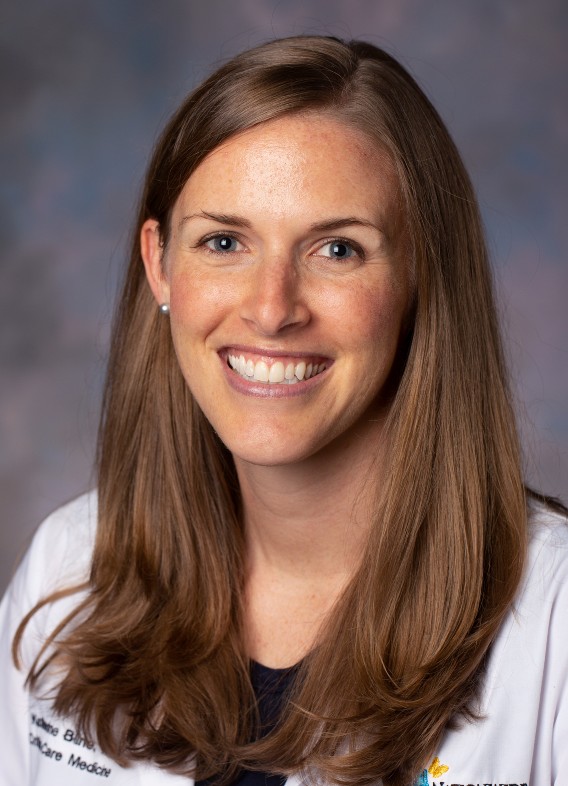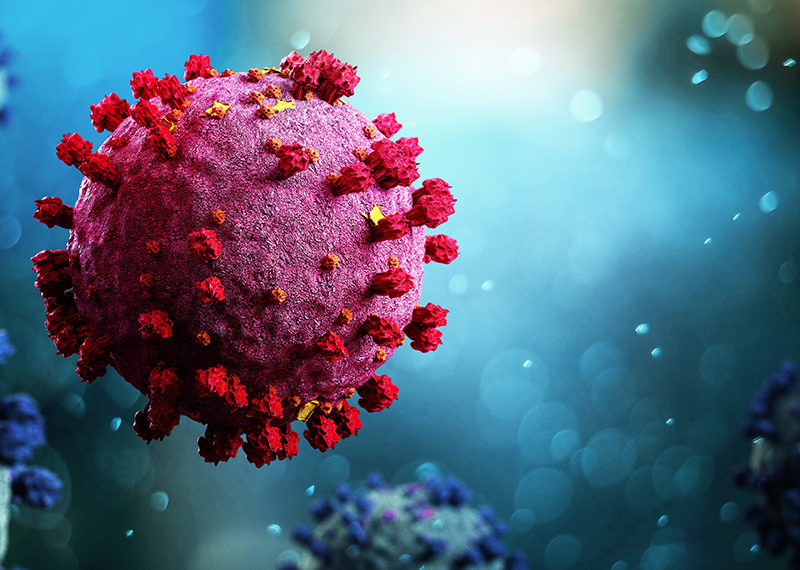Featured Researcher — Katherine Bline, MD
Featured Researcher — Katherine Bline, MD https://pediatricsnationwide.org/wp-content/themes/corpus/images/empty/thumbnail.jpg 150 150 Katie Brind'Amour, PhD, MS, CHES Katie Brind'Amour, PhD, MS, CHES https://pediatricsnationwide.org/wp-content/uploads/2021/03/Katie-B-portrait.gif- June 27, 2023
- Katie Brind'Amour, PhD, MS, CHES
Katherine Bline, MD, is a critical care medicine physician and principal investigator in the Center for Vaccines and Immunity at Nationwide Children’s Hospital. Experience caring for some of the hospital’s sickest children in the pediatric intensive care unit (PICU) and mentors who pushed her to understand phenomena she observed clinically have helped Dr. Bline find a rewarding career that balances medical and scientific approaches to treating severe respiratory infections.
To find out why the same virus can make some children much sicker than others, Dr. Bline is dedicated to understanding children’s individual immune and inflammatory responses, called their immunophenotype.

This focus grew out of initial work in the lab of Mark Hall, MD, FCCM, chief of the Division of Critical Care Medicine and principal investigator in the Center for Clinical and Translational Research at Nationwide Children’s.
Dr. Bline has identified myeloid-derived suppressor cells (MDSC) as a potential target for novel therapies, as these cells are elevated in many children with severe infections and make it harder for their immune systems to fight the virus. She now studies MDSC in sick children according to their age, disease and where they are in the course of their illness. Therapies to inhibit MDSC are already making great headway in dozens of adult clinical trials, and she is hopeful that her ongoing work exploring MDSC inhibition in vitro will soon merit exploration with patient samples and eventual repurposing of adult anti-MDSC therapies.
As evidenced by her upcoming presentation at the Pediatric Academic Societies meeting to her recent K12 grant from the National Institutes of Health, Dr. Bline’s work is gaining traction, and she is exploring collaborations with other researchers to help advance her understanding of the role of MDSC in pediatric infections.
Read on to learn more about Dr. Bline and her work.
How did you decide to work in this field?
I did a rotation in the PICU as a fourth-year medical student and really fell in love with it. The medicine and pathophysiology you can see at the bedside is exciting, and I enjoy the multidisciplinary effort required for almost all our patients — it is truly a team effort. What led me to a career in research was a combination of my own curiosity and excellent mentorship.
What was your path to your current role?
As a resident, I started a chart review project to get more experience and to strengthen my application for my critical care fellowship. The computer I was assigned for that work was right next to the bench area, and I kept wandering over because the experiments with patient samples were so interesting to me. I decided to apply for a small American Academy of Pediatrics resident research grant to do a bench project and found that I really enjoyed that type of work, too.
I had always been interested in immunology, so working in the Hall Lab at Nationwide Children’s when I began my bench research was a great fit.
Then I had my first baby in December of my first year of my PICU fellowship. It was a year with lots of respiratory syncytial virus (RSV) and influenza infections, and I couldn’t stop thinking about why some otherwise healthy children become critically ill to the point of needing intubation in the PICU while others were fine at home with a runny nose. I remember worrying if my own child would be one of the severe cases and need to be intubated.
That drove me to want to learn how we can better prevent and treat children with severe respiratory infections. I decided to focus on the study of respiratory infections for my research moving forward.
What kept you at Nationwide Children’s after you completed your training here?
I chose to stay primarily because of fantastic mentorship and support from clinical and administrative resources. It is a very collegial and supportive clinical community, and they are especially great with junior faculty. The hospital is willing to invest in early career investigators more than other places I interviewed. I knew I would find a similarly supportive research community here as well, and so far, it has exceeded my expectations.
What is your favorite part of your job?
The variety! I love the balance of the bustle of the PICU and the slightly slower pace of the lab, and I enjoy teaching and mentoring trainees on both sides.
Fun Facts About Dr. Bline
What’s your favorite word, and why?
Tenacious. I had a coach in high school who reminded me to be tenacious, and her advice has served me well. Gratitude is another favorite. Working in the PICU brings into focus what’s really important in life and fills me with gratitude for health and life. When I see families in the PICU, it is often one of the worst days of their lives. As a PICU doctor, it brings into focus that we shouldn’t sweat the small stuff.
What do you usually eat for breakfast?
An egg sandwich.
What is your dream job, other than working in research?
I would focus on advocacy for women and children globally.
What’s your favorite food?
Dark chocolate.
Favorite way to relax?
Reading a book outside.
Favorite thing you’ve bought this year?
When the weather is nice, I love to sit outside with my husband on our porch in our new rocking chairs and watch our kids play.
It’s also a great feeling when parents of patients ask me why their child is so sick with a virus when their other children have been fine, I can say this is something we are actively studying.
How does your research serve our patients and our community?
Viral respiratory infections are a major cause of mortality for children around the world and are one of the most common reasons for admission to the PICU at Nationwide Children’s. Right now, the best treatment we have to offer is supportive care, such as supplemental oxygen, suctioning or invasive respiratory support. It has been difficult to make highly effective vaccines for a variety of reasons, so I want to work on augmenting the immune response of children to better fight infection. I believe we can provide more personalized immunomodulatory therapies to children who become critically ill with a virus to improve outcomes.
What’s next?
In the lab, I hope to establish MDSC as a therapeutic target to improve outcomes in children with severe viral lower respiratory tract infections. There are already available therapies to inhibit the immune-suppressive effects of MDSC, with promising results in cancer trials. Studies suggest that inhibiting MDSC improves T cell responses and results in decreased tumor burden and improved prognosis for patients. If we can adapt those therapies to treat ill children with high levels of MDSC, we may be able to stop the MDSC impact on their natural immune response so they can clear the virus and get better more quickly.
About the author
Katherine (Katie) Brind’Amour is a freelance medical and health science writer based in Pennsylvania. She has written about nearly every therapeutic area for patients, doctors and the general public. Dr. Brind’Amour specializes in health literacy and patient education. She completed her BS and MS degrees in Biology at Arizona State University and her PhD in Health Services Management and Policy at The Ohio State University. She is a Certified Health Education Specialist and is interested in health promotion via health programs and the communication of medical information.
-
Katie Brind'Amour, PhD, MS, CHEShttps://pediatricsnationwide.org/author/katie-brindamour-phd-ms-ches/April 27, 2014
-
Katie Brind'Amour, PhD, MS, CHEShttps://pediatricsnationwide.org/author/katie-brindamour-phd-ms-ches/April 27, 2014
-
Katie Brind'Amour, PhD, MS, CHEShttps://pediatricsnationwide.org/author/katie-brindamour-phd-ms-ches/April 27, 2014
-
Katie Brind'Amour, PhD, MS, CHEShttps://pediatricsnationwide.org/author/katie-brindamour-phd-ms-ches/April 28, 2014
- Posted In:
- Featured Researchers







